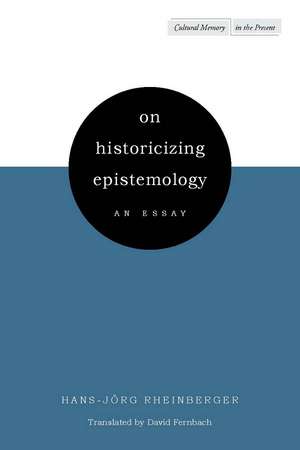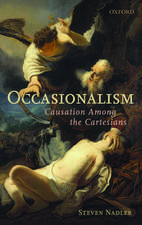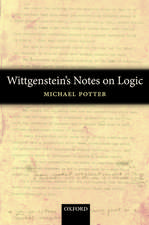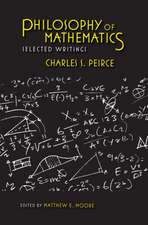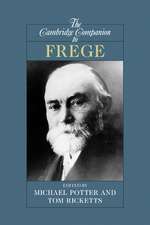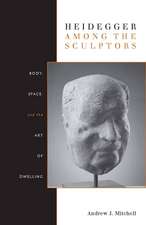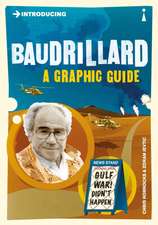On Historicizing Epistemology: An Essay: Cultural Memory in the Present
Autor Hans-Jörg Rheinberger Traducere de David Fernbachen Limba Engleză Paperback – 7 mar 2010
Epistemology, as generally understood by philosophers of science, is rather remote from the history of science and from historical concerns in general. Rheinberger shows that, from the late nineteenth through the late twentieth century, a parallel, alternative discourse sought to come to terms with the rather fundamental experience of the thoroughgoing scientific changes brought on by the revolution in physics. Philosophers of science and historians of science alike contributed their share to what this essay describes as an ongoing quest to historicize epistemology. Historical epistemology, in this sense, is not so concerned with the knowing subject and its mental capacities. Rather, it envisages science as an ongoing cultural endeavor and tries to assess the conditions under which the sciences in all their diversity take shape and change over time.
| Toate formatele și edițiile | Preț | Express |
|---|---|---|
| Paperback (1) | 131.03 lei 3-5 săpt. | |
| Stanford University Press – 7 mar 2010 | 131.03 lei 3-5 săpt. | |
| Hardback (1) | 526.20 lei 6-8 săpt. | |
| Stanford University Press – 8 mar 2010 | 526.20 lei 6-8 săpt. |
Din seria Cultural Memory in the Present
-
 Preț: 173.10 lei
Preț: 173.10 lei -
 Preț: 197.12 lei
Preț: 197.12 lei -
 Preț: 365.56 lei
Preț: 365.56 lei -
 Preț: 193.14 lei
Preț: 193.14 lei -
 Preț: 194.26 lei
Preț: 194.26 lei -
 Preț: 155.84 lei
Preț: 155.84 lei -
 Preț: 155.89 lei
Preț: 155.89 lei -
 Preț: 149.68 lei
Preț: 149.68 lei -
 Preț: 211.98 lei
Preț: 211.98 lei -
 Preț: 228.62 lei
Preț: 228.62 lei -
 Preț: 206.94 lei
Preț: 206.94 lei -
 Preț: 209.36 lei
Preț: 209.36 lei -
 Preț: 193.58 lei
Preț: 193.58 lei -
 Preț: 156.25 lei
Preț: 156.25 lei -
 Preț: 146.22 lei
Preț: 146.22 lei -
 Preț: 171.47 lei
Preț: 171.47 lei -
 Preț: 194.45 lei
Preț: 194.45 lei -
 Preț: 229.26 lei
Preț: 229.26 lei -
 Preț: 296.64 lei
Preț: 296.64 lei -
 Preț: 210.24 lei
Preț: 210.24 lei -
 Preț: 228.62 lei
Preț: 228.62 lei -
 Preț: 278.31 lei
Preț: 278.31 lei -
 Preț: 298.62 lei
Preț: 298.62 lei -
 Preț: 153.16 lei
Preț: 153.16 lei -
 Preț: 193.58 lei
Preț: 193.58 lei -
 Preț: 204.76 lei
Preț: 204.76 lei -
 Preț: 228.39 lei
Preț: 228.39 lei -
 Preț: 139.64 lei
Preț: 139.64 lei -
 Preț: 243.46 lei
Preț: 243.46 lei -
 Preț: 201.90 lei
Preț: 201.90 lei -
 Preț: 152.36 lei
Preț: 152.36 lei -
 Preț: 226.40 lei
Preț: 226.40 lei -
 Preț: 169.59 lei
Preț: 169.59 lei -
 Preț: 197.12 lei
Preț: 197.12 lei -
 Preț: 194.88 lei
Preț: 194.88 lei -
 Preț: 170.65 lei
Preț: 170.65 lei -
 Preț: 194.45 lei
Preț: 194.45 lei -
 Preț: 151.12 lei
Preț: 151.12 lei -
 Preț: 194.01 lei
Preț: 194.01 lei -
 Preț: 194.45 lei
Preț: 194.45 lei -
 Preț: 208.06 lei
Preț: 208.06 lei -
 Preț: 196.69 lei
Preț: 196.69 lei -
 Preț: 142.73 lei
Preț: 142.73 lei -
 Preț: 466.13 lei
Preț: 466.13 lei -
 Preț: 167.15 lei
Preț: 167.15 lei -
 Preț: 194.45 lei
Preț: 194.45 lei -
 Preț: 173.51 lei
Preț: 173.51 lei -
 Preț: 232.11 lei
Preț: 232.11 lei -
 Preț: 207.13 lei
Preț: 207.13 lei -
 Preț: 150.09 lei
Preț: 150.09 lei
Preț: 131.03 lei
Nou
Puncte Express: 197
Preț estimativ în valută:
25.07€ • 26.18$ • 20.75£
25.07€ • 26.18$ • 20.75£
Carte disponibilă
Livrare economică 14-28 martie
Preluare comenzi: 021 569.72.76
Specificații
ISBN-13: 9780804762892
ISBN-10: 0804762899
Pagini: 128
Dimensiuni: 152 x 229 x 10 mm
Greutate: 0.2 kg
Editura: Stanford University Press
Colecția Stanford University Press
Seria Cultural Memory in the Present
ISBN-10: 0804762899
Pagini: 128
Dimensiuni: 152 x 229 x 10 mm
Greutate: 0.2 kg
Editura: Stanford University Press
Colecția Stanford University Press
Seria Cultural Memory in the Present
Recenzii
"Throughout the book, Rheinberger traces the themes of historical contingency, the role of technology, and the plurality of the sciences. These themes are well familiar from Rheinberger's own version of historical epistemology as presented in Towards a History of Epistemic Things. On Historicizing Epistemology thus gives us a helpful overview over those thinkers and positions that are central for Rheinberger's own systematic thinking."—Katherina Kinzel, Metascience
"Rheinberger's ability to move between the historical and the contemporary, drawing upon a vast literature from philosophy, history and anthropology to deal with problems of knowledge—past and present—is deeply impressive . . . One of the book's strengths is the way Rheinberger is able to cultivate an argument that is clear, tightly focused, approachable and analytically unwavering."—Todd Meyers, British Journal of the History of Science
"On Historicizing Epistemology is an elegantly written, lucid introduction to the problems that are at stake in the history of science. Rheinberger has an admirable talent in presenting the most complex epistemological questions without undue simplifications to any educated reader. This book will have an immense impact on the all-too-solidified ideologies of many scientists."—Rainer Nägele, Yale University
"In this small book, Rheinberger proposes the highly interesting thesis that the history of the discipline of the history of science has been animated, above all, by an inquiry into the historical dimension of knowledge and of scientific inquiry. On Historicizing Epistemology is a wonderful introduction to the history of the sciences, but also to the conception of a 'historical epistemology,' which is Rheinberger's most valuable contribution to the development and rethinking of the discipline."—Rodolphe Gasche,State University of New York at Buffalo
Notă biografică
Hans-Jörg Rheinberger is Director of the Max Planck Institute for the History of Science in Berlin. He is the author of Toward a History of Epistemic Things: Synthesizing Proteins in the Test Tube (Stanford, 1997).
Descriere
This book shows how, from the late nineteenth to the late twentieth century, the philosophy of science was increasingly confronted with historical questions and how it became historicized accordingly.
